Kelvin Luu
Time Waits for No One! Analysis and Challenges of Temporal Misalignment
Nov 14, 2021
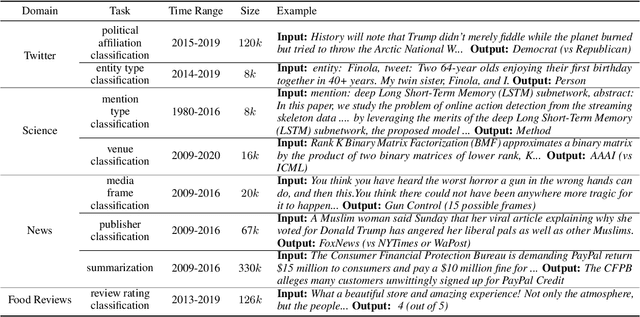
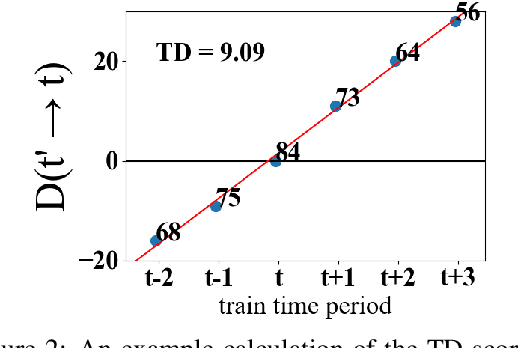
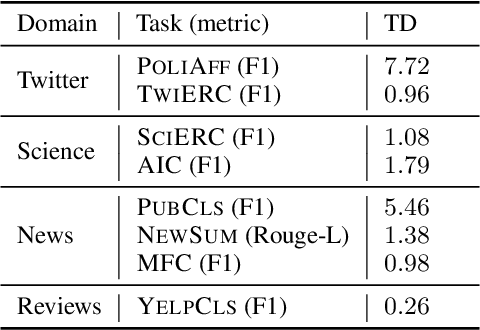
Abstract:When an NLP model is trained on text data from one time period and tested or deployed on data from another, the resulting temporal misalignment can degrade end-task performance. In this work, we establish a suite of eight diverse tasks across different domains (social media, science papers, news, and reviews) and periods of time (spanning five years or more) to quantify the effects of temporal misalignment. Our study is focused on the ubiquitous setting where a pretrained model is optionally adapted through continued domain-specific pretraining, followed by task-specific finetuning. We establish a suite of tasks across multiple domains to study temporal misalignment in modern NLP systems. We find stronger effects of temporal misalignment on task performance than have been previously reported. We also find that, while temporal adaptation through continued pretraining can help, these gains are small compared to task-specific finetuning on data from the target time period. Our findings motivate continued research to improve temporal robustness of NLP models.
Citation Text Generation
Feb 02, 2020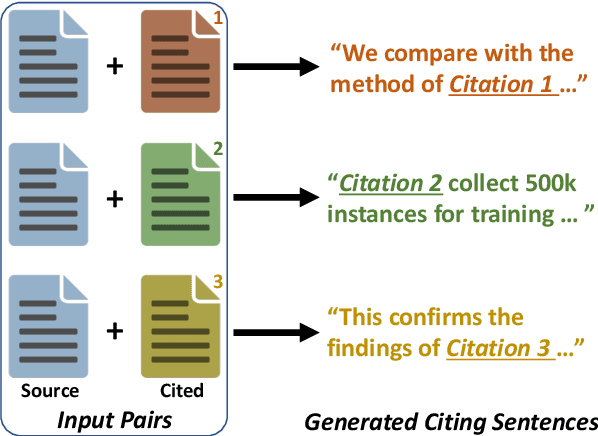
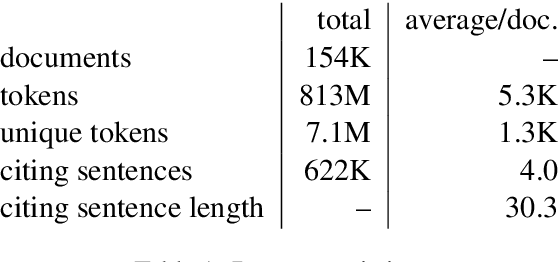
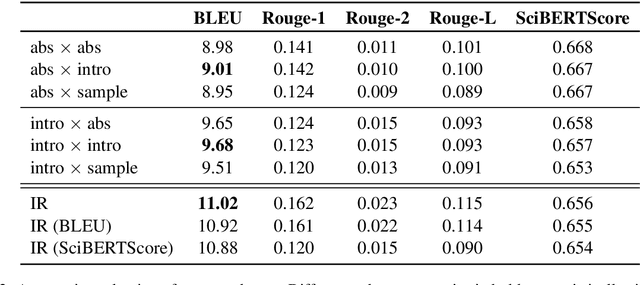

Abstract:We introduce the task of citation text generation: given a pair of scientific documents, explain their relationship in natural language text in the manner of a citation from one text to the other. This task encourages systems to learn rich relationships between scientific texts and to express them concretely in natural language. Models for citation text generation will require robust document understanding including the capacity to quickly adapt to new vocabulary and to reason about document content. We believe this challenging direction of research will benefit high-impact applications such as automatic literature review or scientific writing assistance systems. In this paper we establish the task of citation text generation with a standard evaluation corpus and explore several baseline models.
 Add to Chrome
Add to Chrome Add to Firefox
Add to Firefox Add to Edge
Add to Edge